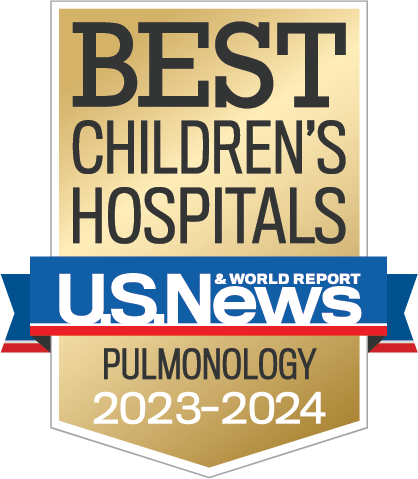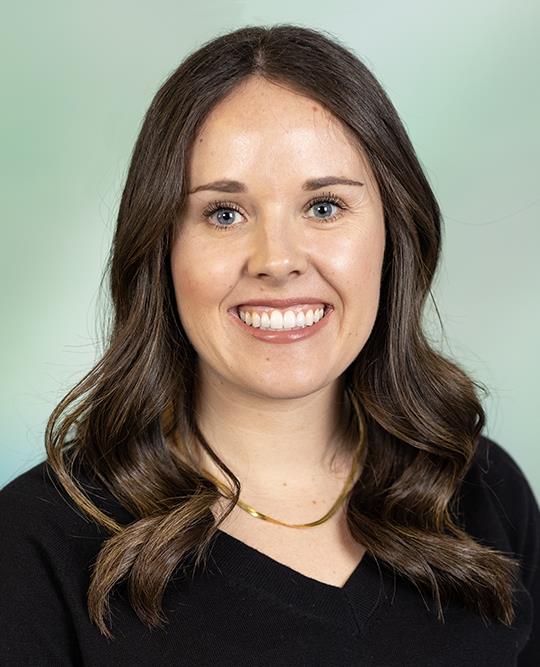- Doctors & Departments
-
Conditions & Advice
- Overview
- Conditions and Symptoms
- Symptom Checker
- Parent Resources
- The Connection Journey
- Calm A Crying Baby
- Sports Articles
- Dosage Tables
- Baby Guide
-
Your Visit
- Overview
- Prepare for Your Visit
- Your Overnight Stay
- Send a Cheer Card
- Family and Patient Resources
- Patient Cost Estimate
- Insurance and Financial Resources
- Online Bill Pay
- Medical Records
- Policies and Procedures
- We Ask Because We Care
Click to find the locations nearest youFind locations by region
See all locations -
Community
- Overview
- Addressing the Youth Mental Health Crisis
- Calendar of Events
- Child Health Advocacy
- Community Health
- Community Partners
- Corporate Relations
- Global Health
- Patient Advocacy
- Patient Stories
- Pediatric Affiliations
- Support Children’s Colorado
- Specialty Outreach Clinics
Your Support Matters
Upcoming Events
Colorado Hospitals Substance Exposed Newborn Quality Improvement Collaborative CHoSEN Conference (Hybrid)
Monday, April 29, 2024The CHoSEN Collaborative is an effort to increase consistency in...
-
Research & Innovation
- Overview
- Pediatric Clinical Trials
- Q: Pediatric Health Advances
- Discoveries and Milestones
- Training and Internships
- Academic Affiliation
- Investigator Resources
- Funding Opportunities
- Center For Innovation
- Support Our Research
- Research Areas

It starts with a Q:
For the latest cutting-edge research, innovative collaborations and remarkable discoveries in child health, read stories from across all our areas of study in Q: Advances and Answers in Pediatric Health.


Bronchiolitis in Children
We see more, treat more and heal more kids than any other hospital in the region.

Get Care Now
From emergency to urgent care to 24/7 pediatric advice, we’re here to help in the heat of moment.
What is bronchiolitis?
Bronchiolitis is a viral infection in the lungs. In babies and young children, bronchiolitis typically starts with upper respiratory symptoms that look like a common cold (such as a stuffy, runny nose). Bronchiolitis in children usually resolves on its own, but some children develop more severe cases that require a hospital stay.
If it progresses, bronchiolitis can move down into the small airways of the lungs called the bronchioles. When the infection reaches these airways, they swell and fill with mucus, making it difficult to breathe. Trouble breathing can lead to bronchiolitis wheezing — a high-pitched whistling sound as your child breathes.
What causes bronchiolitis?
Bronchiolitis is caused by respiratory viruses. Most cases happen in babies who have respiratory syncytial virus (RSV). It may also develop after having a common cold or influenza (flu).
The viruses that cause bronchiolitis are found in small drops of fluid in an infected person's nose and mouth. These droplets spread through the air through sneezes, coughs or laughing. The germs can also end up on things the infected person has touched, such as doorknobs, toys and tissues.
You and your child can help prevent bronchiolitis by washing hands frequently and avoiding those who have a cold or flu. You should also keep infants away from others who have colds or coughs and avoid crowded places where germs spread easily. Infants 6 months of age or older and all family members and caregivers of infants should get an annual flu and COVID vaccine.
Who gets bronchiolitis and how common is it?
Bronchiolitis typically affects children under age 2. Most cases occur in babies 3 to 6 months old because babies’ small airways are more easily blocked with mucus than older kids or adults. Bronchiolitis is the most common reason babies are admitted to the hospital — about 100,000 infants require advanced care each year. Bronchiolitis illness affects children most frequently in the winter and spring.
Risk factors that increase a baby’s chance of getting bronchiolitis and having more severe symptoms include:
- Prematurity (born at least 2 weeks early)
- Congenital heart or lung disease
- Weakened immune system
- Muscle weakness
- Exposure to cigarette smoke
If your baby is at high risk for severe bronchiolitis, ask your child’s pediatrician if they should receive the Synagis (palivizumab) vaccine. This injection can decrease your baby’s chances of being admitted to the hospital with an RSV or bronchiolitis infection.
What are the signs and symptoms of bronchiolitis?
The incubation period for bronchiolitis (the time between contact with the virus and the beginning of symptoms) ranges from several days to a week, depending on the type of virus causing the bronchiolitis.
The first symptoms of bronchiolitis usually look like a common cold:
- Stuffy/runny nose
- Mild cough
- Mild fever
- Mild wheezing that sounds like high-pitched whistling noises when your child exhales
You should seek immediate medical attention if your child is showing these signs of severe respiratory difficulties:
- Fast, shallow breathing
- A fast heartbeat
- Retractions (drawing in of the neck and chest with each breath)
- Flaring of the nostrils
- Irritability, with difficulty sleeping and signs of constantly being tired or sluggish
- Poor feeding and dehydration
- Apnea (pauses in breathing longer than 15 seconds)
- Cyanosis (blue color of the lips, tongue and skin)
Symptoms of bronchiolitis usually last about 12 days but can last as long as 2 to 3 weeks.
How do we diagnose bronchiolitis?
Your child’s doctor will do a physical exam and ask you about your child’s symptoms to diagnose bronchiolitis. They look for coughing, wheezing, trouble breathing and other signs of illness. Your child’s doctor may also check their oxygen levels and in some cases, perform diagnostic tests such as chest X-rays, blood work or viral testing.
How do we treat bronchiolitis?
Fortunately, most cases of bronchiolitis are mild and do not require medical care. Most babies and children with bronchiolitis get better with rest and fluids. Be sure to offer your child fluids in small amounts and more often than usual.
A bulb syringe and saline (saltwater) nose drops can help loosen nasal congestion. This can be especially helpful just before feeding and sleeping. A cool mist vaporizer or humidifier can help loosen mucus and relieve cough and congestion. Breathing treatments with medicines such as albuterol or epinephrine can also be helpful.
Acetaminophen (Tylenol) can help reduce fever and make your child more comfortable. Be sure to follow appropriate dosing and timing of medication based on your child’s weight. Over-the-counter cough and cold remedies are not recommended or approved for infants and young children.
Antibiotics are not useful because bronchiolitis is caused by a viral infection and antibiotics are only effective against bacterial infections.
Babies or children with moderate or severe bronchiolitis may need to be hospitalized, watched closely and given fluids and humidified oxygen. In rare, severe cases, a baby may need a respirator to help them breathe until they start to get better.
Why choose us for bronchiolitis treatment?
At the Breathing Institute at Children’s Hospital Colorado, we provide comprehensive clinical care and consultation for children with common and complex breathing problems. We are experts at treating conditions such as bronchiolitis.
As part of a regional care center, our Breathing Institute provides professional education and advancement of knowledge through research. Our doctors are responsible for discoveries in pulmonary medicine, including the first use of inhaled nitric oxide (iNO) to treat premature infants with respiratory failure.
We are nationally recognized for our expertise in asthma, cystic fibrosis, airway anomalies and disease, pulmonary hypertension, apnea and sleep-disordered breathing, primary ciliary dyskinesia and children's interstitial lung disease. Children's Colorado has the experience and knowledge to treat a broad spectrum of breathing conditions in children and we offer the latest in diagnostic testing for both infants and older children. Our experienced staff of pediatric specialists includes physicians, nurses, dietitians, social workers and respiratory therapists and we work with you and your family to form an effective treatment plan based on your child’s unique symptoms and medical history.
Helpful resources
Healthy Children provides parents with health information on health issues like bronchiolitis and is part of the American Academy of Pediatrics.
Medline Plus provides easy-to-understand information based on the latest medical research with links to pictures, related topics and other trusted sources.
Next steps
-
Would you like to learn more about us?
Learn more about our Urgent Care Services -
Do you need to talk to a nurse?
Find out how to call our hotline

Compassionate care, wherever you are
We’re here when you need us. Telehealth appointments are available across every specialty, so you can get the high-quality care we’ve always offered from the comfort, privacy and convenience of home.
See if telehealth is right for you
Get to know our pediatric experts.

Kimberly Byrne, CPNP-PC
Certified Pediatric Nurse Practitioner, Certified Pediatric Nurse Practitioner
Patient ratings and reviews are not available Why?

Alexandra Craig, CPNP-AC
Certified Pediatric Nurse Practitioner
Patient ratings and reviews are not available Why?

Lindsey Wendel, CPNP-PC
Certified Pediatric Nurse Practitioner

Chelsea Hartman, CPNP-AC/PC
Certified Pediatric Nurse Practitioner, Certified Pediatric Nurse Practitioner
Patient ratings and reviews are not available Why?



 720-777-0123
720-777-0123



